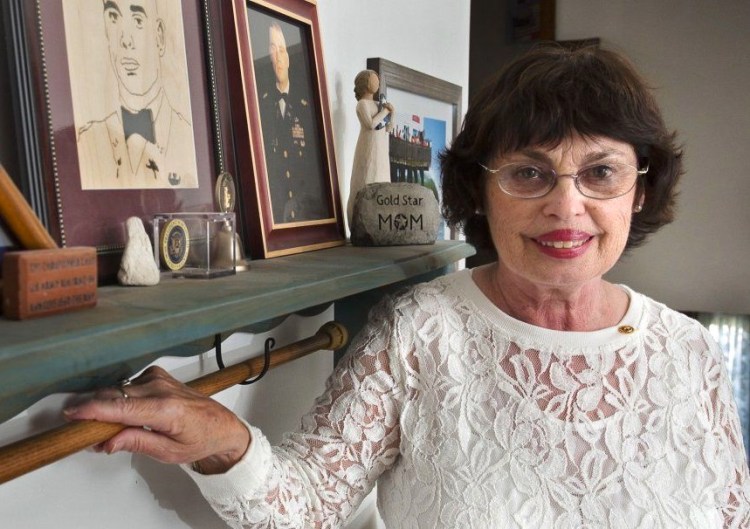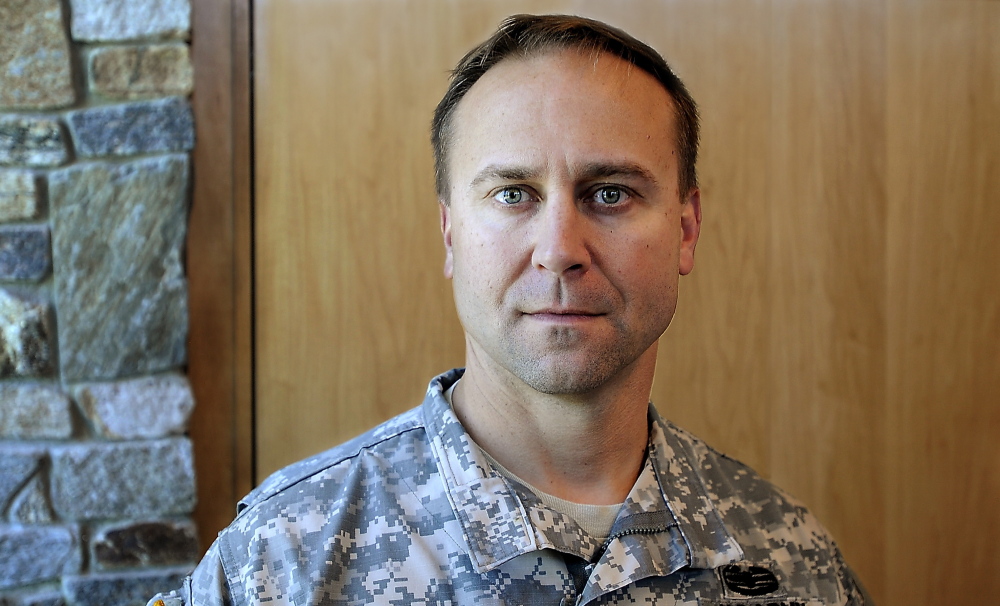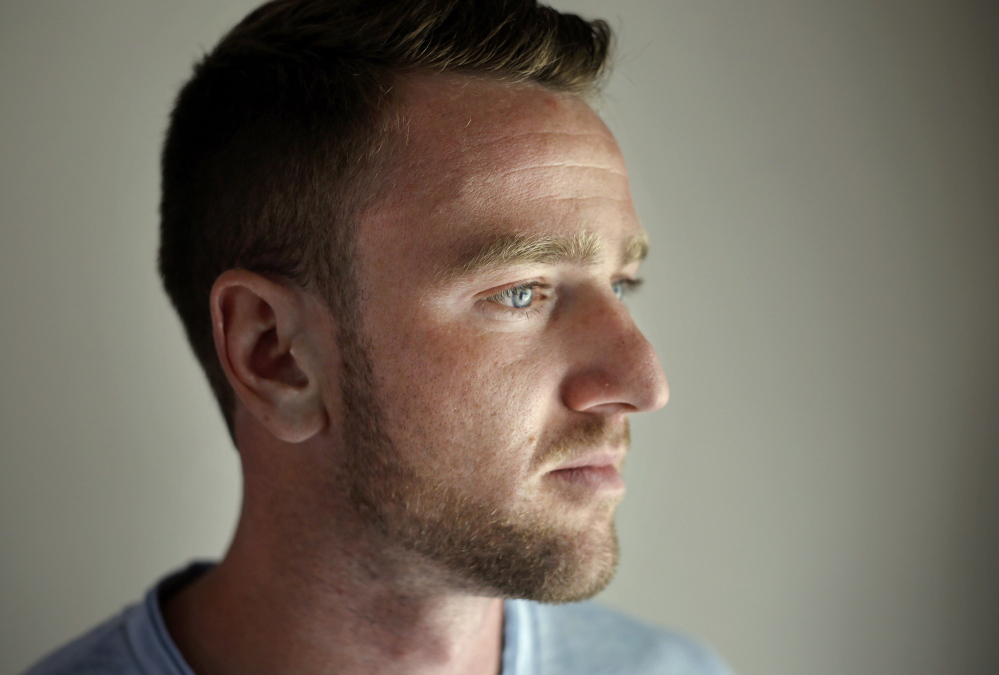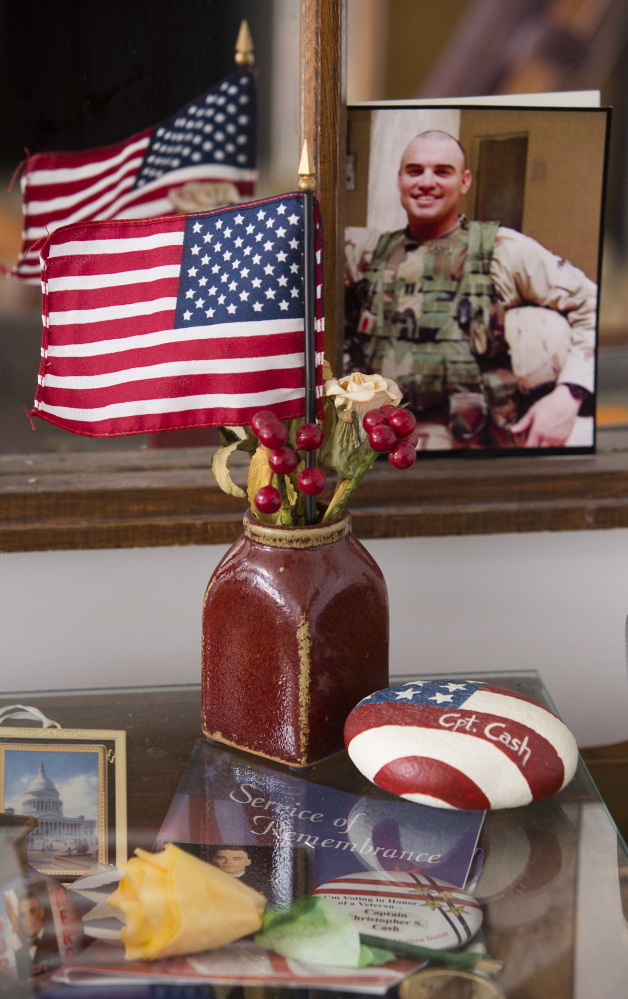Capt. Christopher Cash was patrolling an area of Baqubah, Iraq, north of Baghdad, when his convoy came under fire.
He opened the hatch of his armored vehicle just long enough to shout at his fellow soldiers to take cover, but it cost him his life. He was 36.
That was nearly 11 years ago, but Cash’s mother, Nancy Lee Kelley of Old Orchard Beach, said her sadness hasn’t gone away.
“I feel it every day,” she said.
It would be understandable if Kelley was more angry or troubled than most by the likelihood that the United States will send more U.S. troops to the volatile Middle East country.
But she’s not.
“It’s extremely sad to watch what is going on, but it’s not unexpected,” she said. “If our troops have to go back to Iraq, I would support our military leaders in their decision.”
With Islamic State terrorists taking over more territory in Iraq and unlikely to release nearby Syria from its stranglehold, President Obama faces mounting pressure to send more troops to the Middle East. Earlier this month, the Obama administration announced that 450 military advisers would join the roughly 3,000 soldiers already on the ground, and acknowledged that it may send more to assist Iraqi forces, according to The New York Times and The Wall Street Journal.
On Wednesday, Defense Secretary Ashton Carter testified before the House Armed Services Committee about the Iraqi government’s slow recruitment of forces needed to combat the Islamic State. Carter defended the Pentagon’s plan to have the additional American advisers train Iraqi troops and open a training site in Anbar province, where the Islamic State controls the cities of Ramadi and Fallujah.
Mainers who served in Iraq – both active-duty soldiers and members of the Maine National Guard – said sending more troops to Iraq was predictable given what’s been happening there.
“They weren’t ready,” Sgt. Jake McCullum said of the Iraqi people.
McCullum, who lives in Old Orchard Beach, has done two tours in Iraq – first with the Army’s 101st Airborne Division during the 2007-08 surge, and then with the 82nd Airborne Division in 2009-10 to help rebuild the ravaged country.
“Now all the weapons we gave them to defend themselves are being used, both against the Iraqi army and against us,” he said.
SETBACK AFTER REBUILDING EFFORT
Capt. Adam Cote, a member of the Maine National Guard’s 133rd Engineer Battalion, which spent nearly a year in Iraq in 2004-05 and lost three members, said it’s frustrating to think of all the work done to help rebuild the country, only to see it remain besieged.
“Watching what’s going on definitely creates some mixed and complicated feelings,” said Cote, who lives in Sanford.
Cote said the situation in Iraq has changed since he served as a platoon leader there a decade ago. Although his unit was not infantry and was mostly responsible for rebuilding and repairing structures, the signs of war were everywhere, he said.
That became painfully evident a few days before Christmas 2004, when a suicide bomber infiltrated a mess hall at a base in Mosul. The blast killed 22 soldiers and injured 70 more. Two of the dead – Staff Sgt. Lynn Poulin Sr. of Freedom and Sgt. Thomas J. Dostie of Somerville – and six of the wounded were members of the 133rd.
Another 133rd soldier – Christopher Gelineau, originally of Vermont – was killed during an ambush in April 2004.
“It was a pretty awful time,” said Cote, a father of five who missed the birth of one of his daughters while deployed in Iraq. “But I think those of us that served felt proud that we did a lot to set the stage for success.”
DOUBTS OVER POLICY, GOING BACK IN
Lt. Col. Dan Curtis, who served with Cote in 2004-05 and now commands the 133rd, said he agrees that the work done by many U.S. soldiers will make a difference in the long run.
“What’s happening now isn’t a result of us being there,” he said. “We didn’t leave the job finished.”
Curtis, who lives in Auburn, said he thinks part of the reason why the U.S. has failed in Iraq is because the objectives have been political, rather than military.
“One of the things people don’t always recognize is that we don’t go there because we want to. We go because politicians are directing us,” he said.
McCullum, who enlisted as a 21-year-old knowing he would be sent into combat, said he doesn’t know whether all the time spent and lives lost have made a difference.
“We’re talking about 4,000 years of a religious battle,” he said. “There are benefits and drawbacks to being the world’s police.”
From a humanitarian aspect, McCullum said, he did see some changes among Iraqis while he was there – especially during his second deployment.
To see that undone is disheartening, he said, but he’s not sure the U.S. will ever be able to stabilize the region. The U.S. has been trying for years to train Iraqis to defend themselves but it hasn’t worked.
McCullum, who celebrated his 30th birthday this week, retired from the Army late last year after being injured during training. He returned to Old Orchard Beach and is working toward a degree at the University of Southern Maine in Gorham.
Despite his two tours and his acknowledgment that Iraq remains unstable, McCullum said he would go back if he were still enlisted. He said he misses the camaraderie and the excitement of being a soldier.
“When we are there, we can’t wait to come home, but when we come home, all we want to do is go back,” he said.
McCullum said he is ready for the next phase of his life, but can’t help keeping an eye on what’s happening over there.
Cote and Curtis said they pay attention as well, if for no other reason than it might affect them in the future.
The 133rd completed a deployment to Afghanistan last year – both Cote and Curtis were there – and likely wouldn’t be called back right away, even if the Obama administration decides to commit more troops.
“We have companies in the battalion that are in varying stages of readiness,” Curtis said. “We’re always getting ready.”
MOTHER RETAINS FAITH IN MILITARY
Curtis said veteran guardsmen like him typically view deployments with a stronger sense of caution.
“I think senior guys want to see a clearly defined objective,” he said. “These kids coming in today, they just want to go.”
Even Nancy Lee Kelley said she would support sending more U.S. troops to Iraq.
Since her son’s death, Kelley has taken on a number of efforts to support veterans and troops and to keep Christopher’s memory alive.
“If you’re asking if I’m against war, I have to put faith in military leaders that this is a secure thing,” she said.
Kelley said her son served 18 years in the military – exactly half his life.
“I’m just as proud of him today as the day he went in,” she said.
Before his death, Kelley sent care packages to Iraq for her son and his fellow soldiers.
After he died, she continued to send them.
And if Maine troops get sent back, she’ll do it again.
Send questions/comments to the editors.







Success. Please wait for the page to reload. If the page does not reload within 5 seconds, please refresh the page.
Enter your email and password to access comments.
Hi, to comment on stories you must . This profile is in addition to your subscription and website login.
Already have a commenting profile? .
Invalid username/password.
Please check your email to confirm and complete your registration.
Only subscribers are eligible to post comments. Please subscribe or login first for digital access. Here’s why.
Use the form below to reset your password. When you've submitted your account email, we will send an email with a reset code.